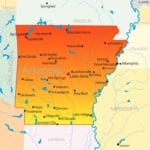
As health care employers and national nursing organizations placed increased emphasis on nurses earning a baccalaureate degree or higher, it may be time to consider enrolling in an RN to BSN program. The occupation as a whole face increased pressures, including nursing shortages and quality of care, which contribute to the call for better-educated nurses. One of two educational recommendations offered by the Institute of Medicine (IOM) is to increase the number of nurses with a baccalaureate degree to a … Read the rest




























